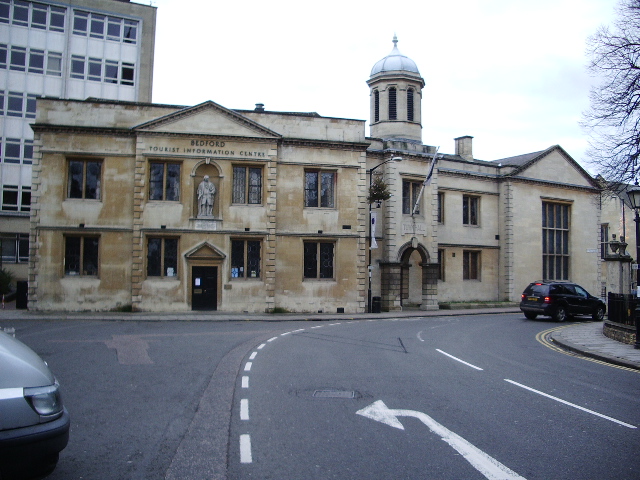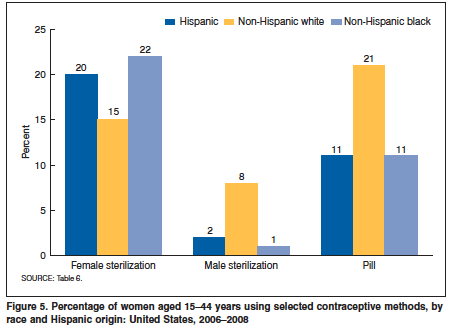|
Stewart Andrew McDowall
Stewart Andrew McDowall (1882 – 13 January 1935) was an English biologist, eugenicist and philosopher. McDowall was born in Bedford.England, Richard K. ''McDowall, Stewart Andrew (1882-1935)''. In Stuart Brown. (2005). ''The Dictionary of Twentieth-Century British Philosophers, Volume 2''. Thoemmes Continuum. p. 605. He was educated at St Paul's School, London, St Paul's School and University College London and graduated in natural science from Trinity College, Cambridge in 1904. He worked in the zoological laboratory at Cambridge and was assistant superintendent of the university's Museum of zoology. In 1905, he was appointed as Professor of Biology at the Christian College in Madras. In 1906, he became assistant master at Winchester College where he later became senior science master. McDowall was a Christian and was ordained in the Church of England in 1908. He was the chaplain at Winchester College. He was a fellow of the Physical Society of London and the Cambridge Phil ... [...More Info...] [...Related Items...] OR: [Wikipedia] [Google] [Baidu] |
Bedford
Bedford is a market town in Bedfordshire, England. At the 2011 Census, the population of the Bedford built-up area (including Biddenham and Kempston) was 106,940, making it the second-largest settlement in Bedfordshire, behind Luton, whilst the Borough of Bedford had a population of 157,479. Bedford is also the historic county town of Bedfordshire. Bedford was founded at a ford on the River Great Ouse and is thought to have been the burial place of King Offa of Mercia, who is remembered for building Offa's Dyke on the Welsh border. Bedford Castle was built by Henry I, although it was destroyed in 1224. Bedford was granted borough status in 1165 and has been represented in Parliament since 1265. It is known for its large population of Italian descent. History The name of the town is believed to derive from the name of a Saxon chief called Beda, and a ford crossing the River Great Ouse. Bedford was a market town for the surrounding agricultural region from the early Middle ... [...More Info...] [...Related Items...] OR: [Wikipedia] [Google] [Baidu] |
Idealism
In philosophy, the term idealism identifies and describes metaphysics, metaphysical perspectives which assert that reality is indistinguishable and inseparable from perception and understanding; that reality is a mental construct closely connected to ideas. Idealist perspectives are in two categories: subjective idealism, which proposes that a material object exists only to the extent that a human being perceives the object; and objective idealism, which proposes the existence of an ''objective'' consciousness that exists prior to and independently of human consciousness, thus the existence of the object is independent of human perception. The philosopher George Berkeley said that the essence of an object is to be perceived. By contrast, Immanuel Kant said that idealism "does not concern the existence of things", but that "our modes of representation" of things such as ''space'' and ''time'' are not "determinations that belong to things in themselves", but are essential featu ... [...More Info...] [...Related Items...] OR: [Wikipedia] [Google] [Baidu] |
People From Bedford
A person ( : people) is a being that has certain capacities or attributes such as reason, morality, consciousness or self-consciousness, and being a part of a culturally established form of social relations such as kinship, ownership of property, or legal responsibility. The defining features of personhood and, consequently, what makes a person count as a person, differ widely among cultures and contexts. In addition to the question of personhood, of what makes a being count as a person to begin with, there are further questions about personal identity and self: both about what makes any particular person that particular person instead of another, and about what makes a person at one time the same person as they were or will be at another time despite any intervening changes. The plural form "people" is often used to refer to an entire nation or ethnic group (as in "a people"), and this was the original meaning of the word; it subsequently acquired its use as a plural form o ... [...More Info...] [...Related Items...] OR: [Wikipedia] [Google] [Baidu] |
Idealists
In philosophy, the term idealism identifies and describes metaphysical perspectives which assert that reality is indistinguishable and inseparable from perception and understanding; that reality is a mental construct closely connected to ideas. Idealist perspectives are in two categories: subjective idealism, which proposes that a material object exists only to the extent that a human being perceives the object; and objective idealism, which proposes the existence of an ''objective'' consciousness that exists prior to and independently of human consciousness, thus the existence of the object is independent of human perception. The philosopher George Berkeley said that the essence of an object is to be perceived. By contrast, Immanuel Kant said that idealism "does not concern the existence of things", but that "our modes of representation" of things such as ''space'' and ''time'' are not "determinations that belong to things in themselves", but are essential features of the ... [...More Info...] [...Related Items...] OR: [Wikipedia] [Google] [Baidu] |
English Eugenicists
English usually refers to: * English language * English people English may also refer to: Peoples, culture, and language * ''English'', an adjective for something of, from, or related to England ** English national identity, an identity and common culture ** English language in England, a variant of the English language spoken in England * English languages (other) * English studies, the study of English language and literature * ''English'', an Amish term for non-Amish, regardless of ethnicity Individuals * English (surname), a list of notable people with the surname ''English'' * People with the given name ** English McConnell (1882–1928), Irish footballer ** English Fisher (1928–2011), American boxing coach ** English Gardner (b. 1992), American track and field sprinter Places United States * English, Indiana, a town * English, Kentucky, an unincorporated community * English, Brazoria County, Texas, an unincorporated community * E ... [...More Info...] [...Related Items...] OR: [Wikipedia] [Google] [Baidu] |
British Christian Writers
British may refer to: Peoples, culture, and language * British people, nationals or natives of the United Kingdom, British Overseas Territories, and Crown Dependencies. ** Britishness, the British identity and common culture * British English, the English language as spoken and written in the United Kingdom or, more broadly, throughout the British Isles * Celtic Britons, an ancient ethno-linguistic group * Brittonic languages, a branch of the Insular Celtic language family (formerly called British) ** Common Brittonic, an ancient language Other uses *''Brit(ish)'', a 2018 memoir by Afua Hirsch *People or things associated with: ** Great Britain, an island ** United Kingdom, a sovereign state ** Kingdom of Great Britain (1707–1800) ** United Kingdom of Great Britain and Ireland (1801–1922) See also * Terminology of the British Isles * Alternative names for the British * English (other) * Britannic (other) * British Isles * Brit (other) * Bri ... [...More Info...] [...Related Items...] OR: [Wikipedia] [Google] [Baidu] |
1935 Deaths
Events January * January 7 – Italian premier Benito Mussolini and French Foreign Minister Pierre Laval conclude an agreement, in which each power agrees not to oppose the other's colonial claims. * January 12 – Amelia Earhart becomes the first person to successfully complete a solo flight from Hawaii to California, a distance of 2,408 miles. * January 13 – A plebiscite in the Territory of the Saar Basin shows that 90.3% of those voting wish to join Germany. * January 24 – The first canned beer is sold in Richmond, Virginia, United States, by Gottfried Krueger Brewing Company. February * February 6 – Parker Brothers begins selling the board game Monopoly in the United States. * February 13 – Richard Hauptmann is convicted and sentenced to death for the kidnapping and murder of Charles Lindbergh Jr. in the United States. * February 15 – The discovery and clinical development of Prontosil, the first broadly effective antibiotic, is published in a series ... [...More Info...] [...Related Items...] OR: [Wikipedia] [Google] [Baidu] |
1882 Births
Year 188 (CLXXXVIII) was a leap year starting on Monday of the Julian calendar. At the time, it was known in the Roman Empire as the Year of the Consulship of Fuscianus and Silanus (or, less frequently, year 941 ''Ab urbe condita''). The denomination 188 for this year has been used since the early medieval period, when the Anno Domini calendar era became the prevalent method in Europe for naming years. Events By place Roman Empire * Publius Helvius Pertinax becomes pro-consul of Africa from 188 to 189. Japan * Queen Himiko (or Shingi Waō) begins her reign in Japan (until 248). Births * April 4 – Caracalla (or Antoninus), Roman emperor (d. 217) * Lu Ji (or Gongji), Chinese official and politician (d. 219) * Sun Shao, Chinese general of the Eastern Wu state (d. 241) Deaths * March 17 – Julian, pope and patriarch of Alexandria * Fa Zhen (or Gaoqing), Chinese scholar (b. AD 100) * Lucius Antistius Burrus, Roman politician (executed) * Ma X ... [...More Info...] [...Related Items...] OR: [Wikipedia] [Google] [Baidu] |
Sterilization (medicine)
Sterilization ( also spelled sterilisation) is any of a number of medical methods of birth control that intentionally leaves a person unable to reproduction, reproduce. Sterilization methods include both surgical and non-surgical, and exist for both males and females. Sterilization procedures are intended to be permanent; reversal is generally difficult or impossible. There are multiple ways of having sterilization done, but the two that are used most frequently are tubal ligation for women and vasectomy for men. There are many different ways tubal sterilization can be accomplished. It is extremely effective and in the United States surgical complications are low. With that being said, tubal sterilization is still a method that involves surgery, so there is still a danger. Women that chose a tubal sterilization may have a higher risk of serious side effects, more than a man has with a vasectomy. Pregnancy, Pregnancies after a tubal sterilization can still occur, even many years ... [...More Info...] [...Related Items...] OR: [Wikipedia] [Google] [Baidu] |
Eugenicist
Eugenics ( ; ) is a fringe set of beliefs and practices that aim to improve the genetic quality of a human population. Historically, eugenicists have attempted to alter human gene pools by excluding people and groups judged to be inferior or promoting those judged to be superior. In recent years, the term has seen a revival in bioethical discussions on the usage of new technologies such as CRISPR and genetic screening, with a heated debate on whether these technologies should be called eugenics or not. The concept predates the term; Plato suggested applying the principles of selective breeding to humans around 400 BC. Early advocates of eugenics in the 19th century regarded it as a way of improving groups of people. In contemporary usage, the term ''eugenics'' is closely associated with scientific racism. Modern bioethicists who advocate new eugenics characterize it as a way of enhancing individual traits, regardless of group membership. While eugenic principles have ... [...More Info...] [...Related Items...] OR: [Wikipedia] [Google] [Baidu] |


_1938.jpg)



